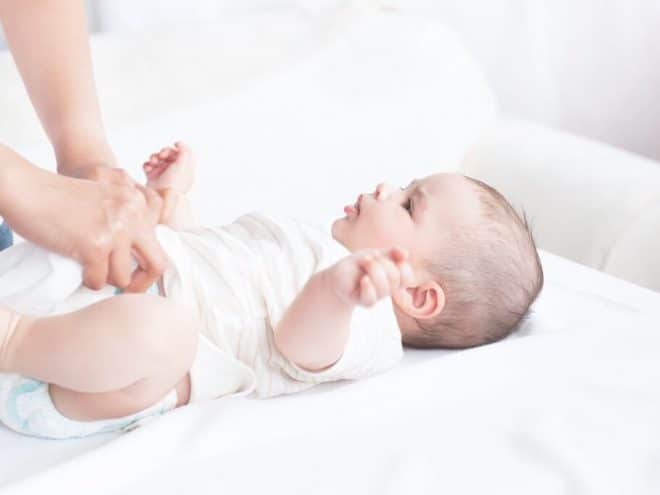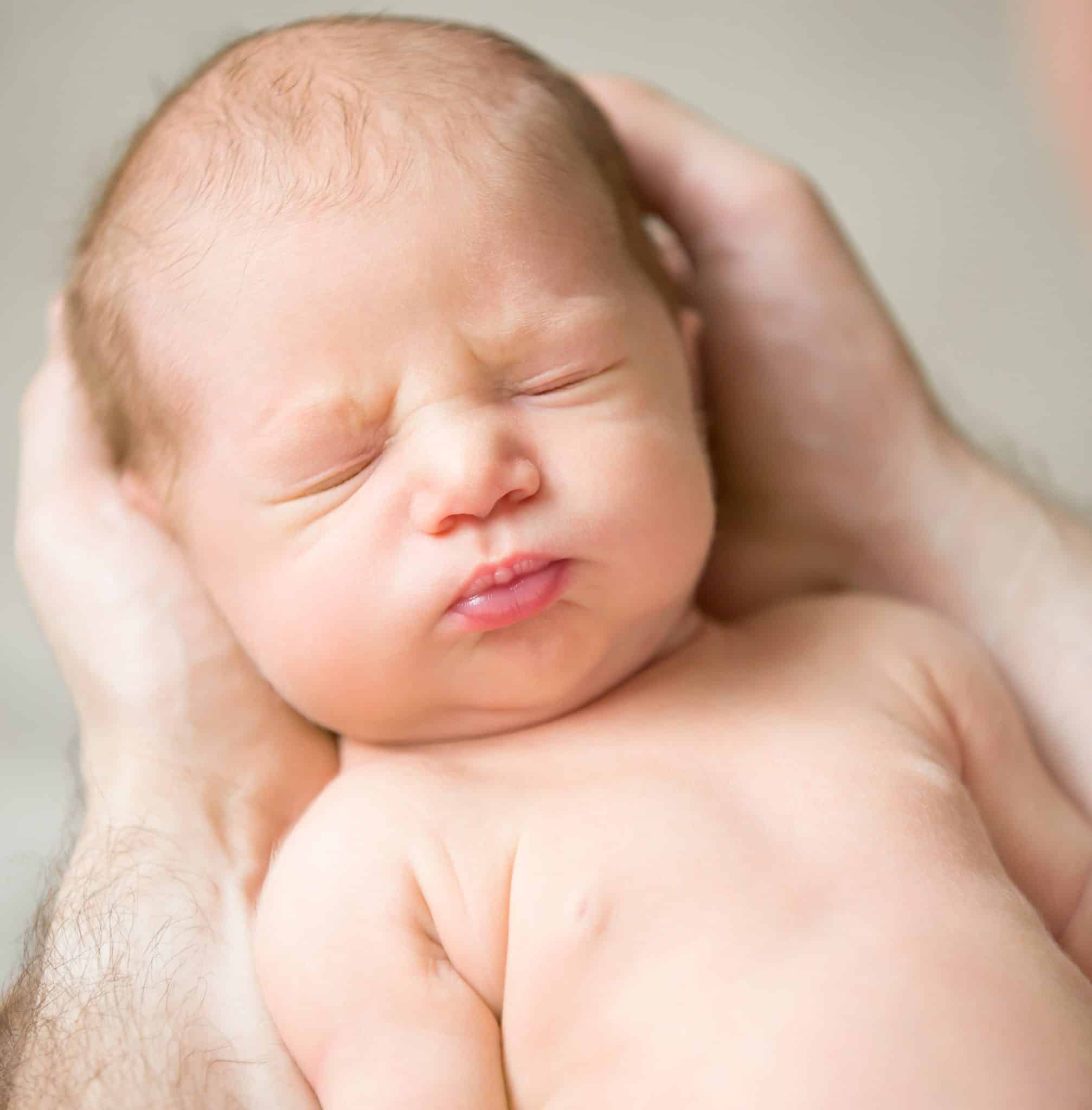Your baby is growing quickly and it may seem like you need to move up in size. But how can you know for sure when to go up a size in diapers?
They say: when all else fails, read the instructions. But have you read the size guidelines on a box of diapers? It can be a little tricky. And if you have your baby crying in the background, it will make no sense at all. But don’t worry – here are a few simple signs to look for.
Mom’s Guide On When To Go Up A Size In Diapers
-
You Are Experiencing Frequent Diaper Blowouts And Leaks
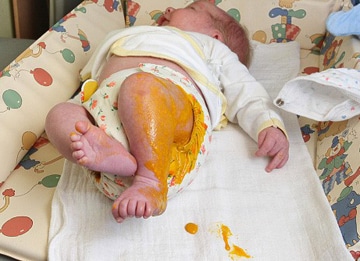
If you are experiencing frequent leaks and diaper blowouts, you may be blaming the brand of diapers you are currently using. While a poor diaper quality could be the cause of leaks and blowouts, this is also an obvious sign that your baby needs to move up a diaper size.
If there is not enough room left in the diaper, the mess has to go somewhere. Your result – diaper leaks and blowouts.
-
You Are Seeing Red Marks On Your Baby’s Legs
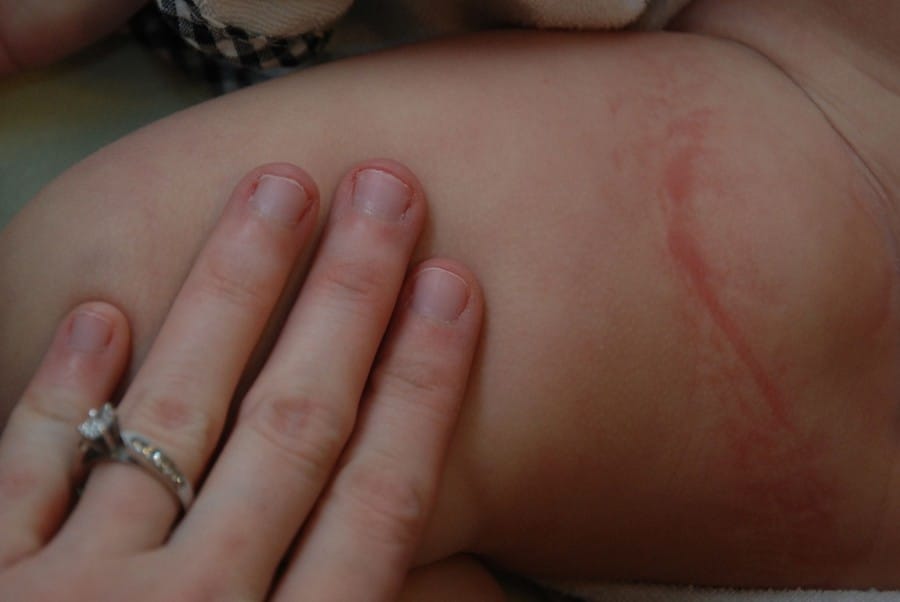
Disposable diapers have elastic around the legs. This is meant to keep everything inside the diaper. However, if you start noticing red marks on your baby’s little thighs, this is a telltale sign that the diapers are a bit too snug. Once you notice those marks, it’s a good time to move up a diaper size.
-
The Diaper Tabs Are Not Closing Comfortably
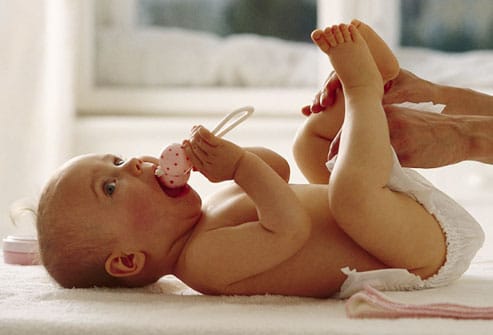 If you are finding it hard to connect the diaper tabs at your baby’s waist, that is usually a sign that it’s time to move up a diaper size.
If you are finding it hard to connect the diaper tabs at your baby’s waist, that is usually a sign that it’s time to move up a diaper size.
Diapers should close easily. You should not need to tug and pull at them.
Also, check the rise of the diaper. A properly fitting diaper should come just slightly below your baby’s belly button. If the diaper is fitting a little more like a low rise, it’s time to move on up in size.
-
Check Your Baby’s Weight
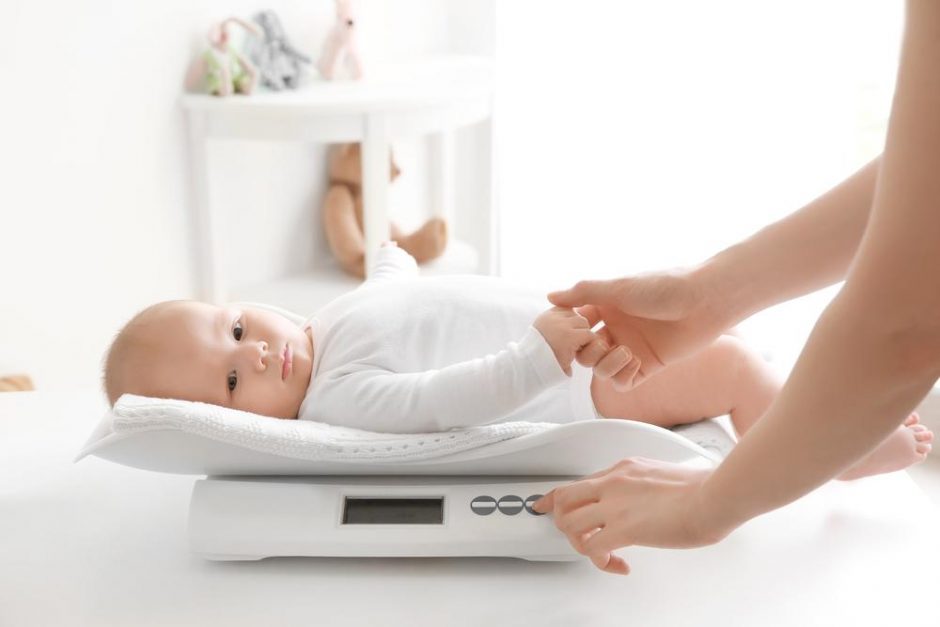 All diaper manufacturers have a weight limit for each diaper size. Check the diaper box or packaging and see what the upper limit of the diaper’s weight range is. For example, newborn diaper have an upper weight limit of 10lbs.
All diaper manufacturers have a weight limit for each diaper size. Check the diaper box or packaging and see what the upper limit of the diaper’s weight range is. For example, newborn diaper have an upper weight limit of 10lbs.
If your baby is at or over that weight limit, it is time to move up in diaper size.
Also, keep in mind that even if your baby is below that weight limit, it may still be time to move to the next size. That’s because the diaper weight limits are based on average-sized babies, but not all babies are shaped the same.
Diaper Calculator
Our calculator uses data provided by the CDC's Baby Growth Charts and the diaper manufacturer's sizing and usage charts. CDC data is based on the average growth rate of a child.
However, not all children are the same. Please use the data provided as a general estimate to help you plan your diaper purchases.
Disposable Diaper Calculator Refresh
Add your baby's age & weight to calculate the number of diapers you will need during your first year. If you're still pregnant, please estimate your baby's weight.
How many diapers per day?
| 0-3 MONTHS | 10 |
| 3-6 MONTHS | 8-10 |
| 6-9 MONTHS | 6-8 |
| 9-12 MONTHS | 6-7 |
| 12-18 MONTHS | 5-6 |
| 18-36 MONTHS | 4 |
What size diaper to choose?
| SIZE NB | UP TO 10 LBS |
| SIZE 1 | 8 - 14 LBS |
| SIZE 2 | 12 - 18 LBS |
| SIZE 3 | 16 - 28 LBS |
| SIZE 4 | 22 - 37 LBS |
| SIZE 5 | OVER 27 LBS |
| SIZE 6 | OVER 35 LBS |
Here's a helpful chart of expected weight gain over the next 6 months. Hover over the chart for more details.
Amazing Savings For New & Expecting Parents
A NEW MOM'S GUIDE TO DIAPERING LIKE A PRO:
Diapering seems so easy at first glance, but it can get confusing and frustrating. Here are a few helpful posts to help you figure things out.
